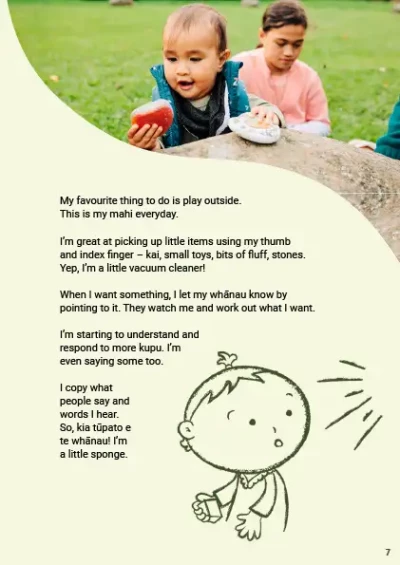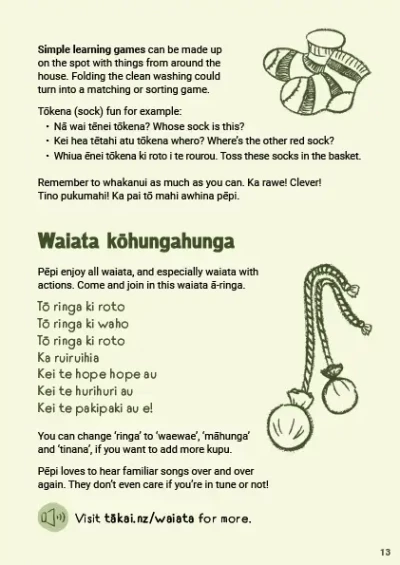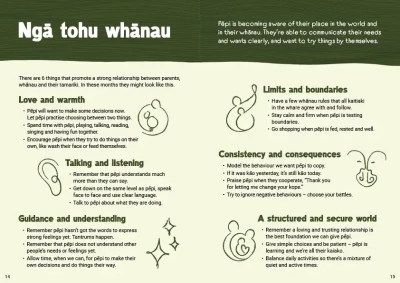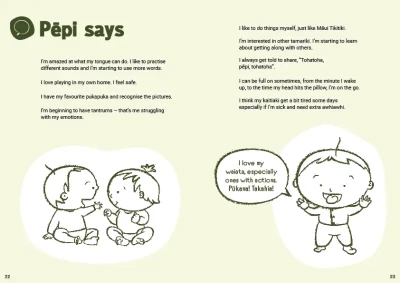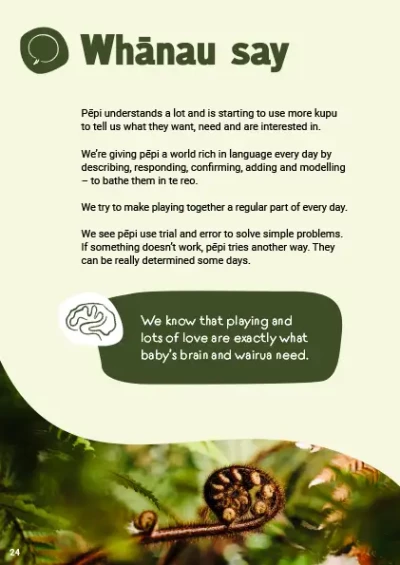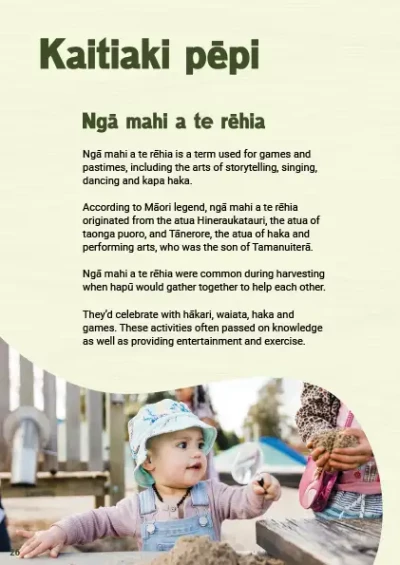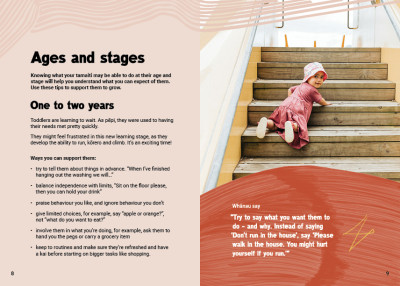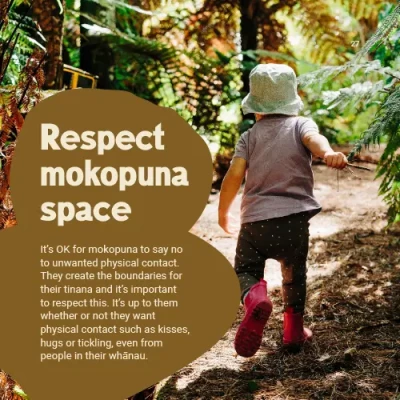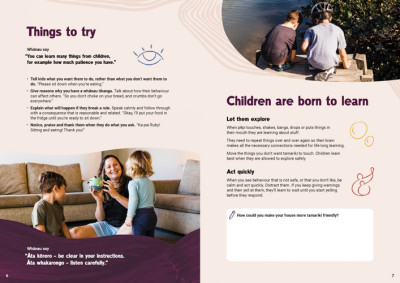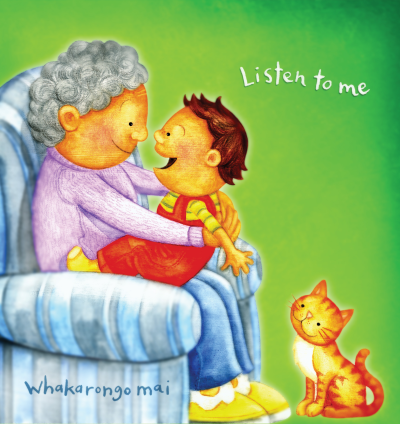
Learning language using Tākai resources
Tākai resources you can use with whānau to explore language learning with their child.
In the Whakatipu booklet Te Pihinga 3, ‘Talking and listening’ on page 14 reminds us:
- that tamariki of this age understand much more than they can say
- to get down to their level and speak face to face, using clear language
- to talk to pēpi about what they are doing.
Here are other helpful places in Te Pihinga 3 to explore with whānau:
- Page 7 — ‘Pēpi says: I’m starting to understand and respond to more kupu . I’m even saying some too.'
- Page 13 — ‘Waiata kōhungahunga: Pēpi loves to hear familiar songs over and over again. They don’t even care if you’re in tune or not!
- Page 22 — ‘Pēpi says: I’m amazed at what my tongue can do. I like to practise different sounds and I’m starting to use more words.'
- Page 23 — ‘Pēpi says: I love my waiata, especially ones with actions.'
- Page 24 — 'Whānau say: We’re giving pēpi a world rich in language every day by describing, responding, confirming, adding and modelling – to bathe them in te reo.'
- Page 26 — ‘Kaitiaki pēpi: Ngā mahi a te rēhia is a term used for games and pastimes, including the arts of storytelling, singing, dancing and kapa haka.'
Dealing with toddler impatience
The World of Under-fives booklet (pages 8-9) reminds parents that toddlers ‘want things here and now’, and suggests:
- ‘try to tell them about things in advance. “When I’ve finished hanging out the washing we will…”’
- ‘praise behaviour you do like, and ignore behaviour you don’t’
- ‘try to say what you do want them to do – and why’.
- ‘Say more positive things than negative things. Kia kaha!’
Ask toddlers nicely
When whānau ask toddlers to do something, remember to:
- say what you want them to do
- give reasons why
- notice, praise and thank them.
In the Aroha in Action booklet, ‘Respect mokopuna space’ (page 27), it reminds whānau, ‘It’s OK for mokopuna to say no to unwanted physical contact.’
Conversation ideas
How do these ideas match your child’s behaviour at the moment with regards to their understanding language?
What changes have you noticed?
Why do you think that’s happening?
How do they respond to you when you sing or tell stories?
What sort of new sounds are they trying to make?
How has this affected you and your whānau?
What times with your child have been exciting, fun or made you celebrate?
Have you had challenges with your child?
What would you like to talk about?
What more would you like to find out about?
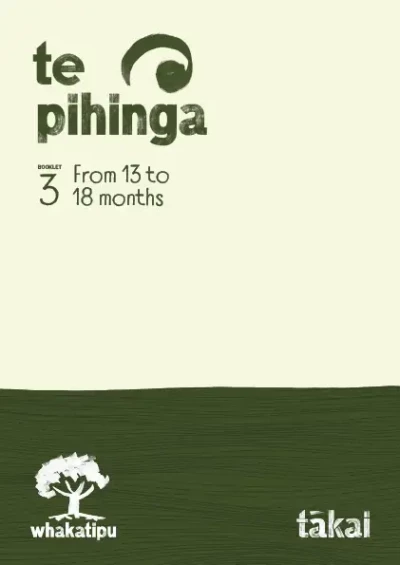 pdf 11 MB
pdf 11 MB
